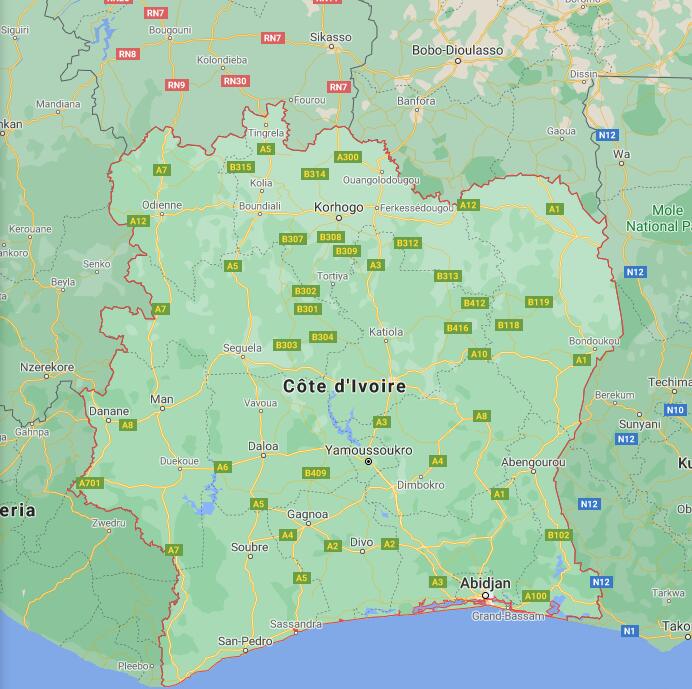
In 2003, Ivory Coast was a West African nation located on the Gulf of Guinea. It had a population of around 17 million people and was the 3rd most populous country in West Africa. According to computergees, the capital city was Yamoussoukro and the official language was French. Ivory Coast’s economy had grown steadily since the late 1980s, due to reforms that encouraged foreign investment and reduced taxation on businesses. This had resulted in a high standard of living for many Ivorian citizens, although there were still pockets of poverty in some areas. Education levels were high compared to other countries in West Africa, with a literacy rate close to 70%. Healthcare access was also good due to government efforts to provide universal health care coverage. Crime rates were relatively low compared to other countries in the region, and there were no reports of political violence in 2003. The government at the time was led by President Laurent Gbagbo who had been elected in 2000 and had implemented several economic reforms such as reducing tariffs on imports and introducing labor reforms. Despite its small size, Ivory Coast maintained strong cultural ties to its neighbors including its unique cuisine as well as its rich history of literature, music and art forms such as traditional drumming which have been passed down for centuries.
Yearbook 2003
Ivory Coast. The intensity of the civil war that erupted in September 2002 waned in January, and at the end of the month the government and the three rebel groups signed a peace agreement. A unifying government would be formed and the president would hand over a series of powers to a new prime minister.
According to Countryaah.com, Ivory Coast Independence Day is August 7. Seydou Diarra, a respected politician from the north, was appointed head of the unity government. led a national reconciliation conference a year earlier. Government formation, however, dragged on over time. The rebels took part in occasional meetings, but most often boycotted the government in protest against President Laurent Gbagbo unilaterally appointing a Minister of Defense and a Minister of the Interior that they did not want to approve. The Rebels had demanded to add these two important items themselves. New battles flared over and over in the western parts of the country. The rebels accused the loyalist militia backed by Liberian mercenaries for being behind the outbreak of war.
A new ceasefire agreement was concluded on May 1, and now the Liberian army was behind the agreement. In June the parties decided to gather all the soldiers in the cities, and in July the UN was able to send a first group of unarmed military observers.
On July 5, the war was officially concluded. The international peacekeeping force that began stationing in the Ivory Coast at the end of 2002 was strengthened and amounted to nearly 4,000 French soldiers and more than 3,000 from West African countries during the fall. But still not all ministerial issues were resolved, and at the end of September, the rebels interrupted government cooperation.
West African leaders held a series of meetings to try to resolve the conflict, but only in December did the rebels say they were prepared to take back their positions in the government. The war, which made between 600,000 and 1 million people homeless, had also had devastating economic consequences. The fact that the Ivory Coast was still judged to have little economic growth in 2003 was entirely due to an unusually good cocoa harvest and favorable prices. For most other industries, it looked bleak.
Republic of Côte d’Ivoire Brief Guide
According to AbbreviationFinder, Côte d’Ivoire is a country in West Africa. It is bordered on the west by Liberia and Guinea, on the north by Mali and Burkina Faso, and on the east by Ghana. In 1983, the inland Yamoussoukro was made the official capital, but the administration is still practically concentrated in the largest city, Abidjan. According to a decision taken by the government in 1985, the name of the country is Côte d’Ivoire in all languages and no name other than French may be used. Abroad, however, this is not always the case.
Insurance
Everyone participating in the trip must have a valid travel insurance that covers medical expenses in the event of illness or other similar need. Please check the validity of your own insurance and the terms and conditions of the insurance cancellation cover.
Please pay attention to the special nature of your trip and check the coverage of the insurance in that respect as well. In many locations, the insurance must also be valid when moving at an altitude of more than 3,000 meters, in which case it also covers mountain sickness.
Many hiking or diving trips require more extensive insurance, which covers, for example, diving or moving on a glacier. Please check the contents of your insurance with your insurance company.